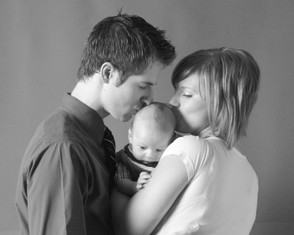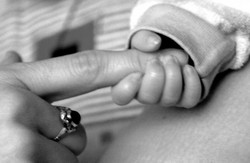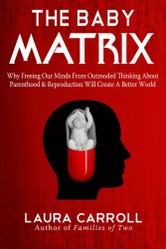Being able to have children of one's own is a fact of life most people take for granted. We generally assume that when one wants to get pregnant and have children, it will be easy once you find the right partner and simply decide to start trying. Indeed, most people are far more concerned about birth control and preventing unwanted pregnancy when it would be inconvenient or unwelcome, than ever think about what it would be like to not be able to have a child whenever the "time is right".
But for others, the dream of being able to give birth to a healthy, happy baby ends up being far out of reach, and often unexpectedly and inexplicably so. Those struggling with infertility not only have to deal with the pain and grief of potentially never having children, but they also have to deal with ignorance about the condition and its causes, and lack of understanding from friends, loved ones and society in general.
Many, however, are at last starting to speak up and attempt to raise infertility awareness and knowledge. This page is dedicated to those individuals who choose to fight for awareness and consideration when it comes to matters of infertility, and helping other women and couples struggling with this disease.










 The social network Facebook has helped bring millions of people closer together, but for those coping with infertility, Facebook can become a hazardous place to spend time. Indeed, even The Washington Post called Facebook a Minefield for Infertile Couples in an October 2010 article. The blog
The social network Facebook has helped bring millions of people closer together, but for those coping with infertility, Facebook can become a hazardous place to spend time. Indeed, even The Washington Post called Facebook a Minefield for Infertile Couples in an October 2010 article. The blog 









 National Infertility Awareness Week is an annual event held every April. Sponsored by
National Infertility Awareness Week is an annual event held every April. Sponsored by  Infertility is a personal journey, which no two people take the same path along. Every person must choose not only how they will deal with the disease but how they will deal with discussing the subject with others.
Infertility is a personal journey, which no two people take the same path along. Every person must choose not only how they will deal with the disease but how they will deal with discussing the subject with others.









 A Potentially Fatal Accident in the Homeon 11/24/2018
A Potentially Fatal Accident in the Homeon 11/24/2018
 Windsurfing Lessons on Montserrat: One of My Funniest—and Fondest—Travel Memorieson 11/20/2018
Windsurfing Lessons on Montserrat: One of My Funniest—and Fondest—Travel Memorieson 11/20/2018
 Christmas Ornaments Celebrating Rome, Italyon 11/12/2018
Christmas Ornaments Celebrating Rome, Italyon 11/12/2018
 Philadelphia-Themed Christmas Ornamentson 11/09/2018
Philadelphia-Themed Christmas Ornamentson 11/09/2018



Comments